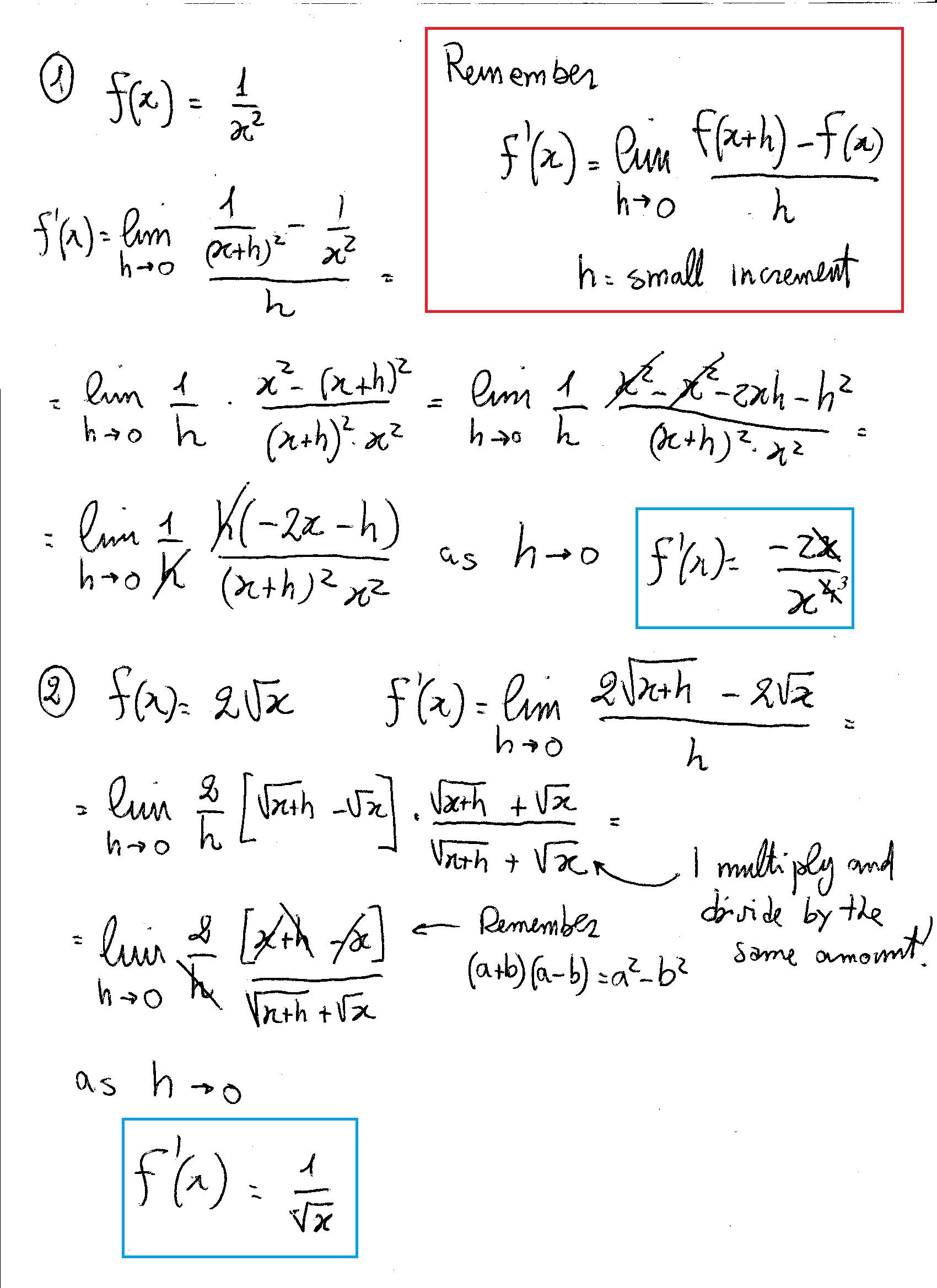Given: #f(x) = 1/x^2#, then #f(x+h) = 1/(x+h)^2#
Using the definition, #f'(x) = lim_(hto0)(f(x+h)-f(x))/h#:
#f'(x) = lim_(hto0)(1/(x+h)^2-1/x^2)/h#
Multiply by 1 in the form of #(x^2(x+h)^2)/(x^2(x+h)^2)#
#f'(x) = lim_(hto0)(1/(x+h)^2-1/x^2)/h(x^2(x+h)^2)/(x^2(x+h)^2)#
Use the distributive property on the numerator; the denominator is just multiplication:
#f'(x) = lim_(hto0)(((x^2(x+h)^2))/(x+h)^2-((x^2(x+h)^2))/x^2)/(h(x^2(x+h)^2))#
Please observe the cancellations that this multiplication causes:
#f'(x) = lim_(hto0)(((x^2color(red)cancel((x+h)^2)))/color(red)cancel((x+h)^2)-((color(red)cancel(x^2)(x+h)^2))/color(red)cancel(x^2))/(h(x^2(x+h)^2))#
The cancelled factors have been removed:
#f'(x) = lim_(hto0)(x^2-(x+h)^2)/(h(x^2(x+h)^2))#
Expand the square in the numerator:
#f'(x) = lim_(hto0)(x^2-x^2-2xh-h^2)/(h(x^2(x+h)^2))#
#x^2-x^2# sums to 0:
#f'(x) = lim_(hto0)(-2xh-h^2)/(h(x^2(x+h)^2))#
There is a common factor of #h# in the numerator that will cancels with a factor of #h# in the denominator:
#f'(x) = lim_(hto0)(-2x-h)/((x^2(x+h)^2))#
We can let "h" become 0 without harm:
#f'(x) = (-2x)/(x^2x^2)#
Simplify:
#f'(x) = -2/x^3#
Given: #f(x) = 2sqrtx#, them #f(x+h) = 2sqrt(x+h)#
Using the definition, #f'(x) = lim_(hto0)(f(x+h)-f(x))/h#:
#f'(x) = lim_(hto0)(2sqrt(x+h)-2sqrtx)/h#
Factor out 2:
#f'(x) = 2lim_(hto0)(sqrt(x+h)-sqrtx)/h#
Eliminate the radicals in the numerator by multiplying by 1 in the form of #(sqrt(x+h)+sqrtx)/(sqrt(x+h)+sqrtx)#:
#f'(x) = 2lim_(hto0)(sqrt(x+h)-sqrtx)/h(sqrt(x+h)+sqrtx)/(sqrt(x+h)+sqrtx)#
We know that the radicals are gone because of the pattern #(a-b)(a+b) = a^2-b^2#:
#f'(x) = 2lim_(hto0)(x+h-x)/(h(sqrt(x+h)+sqrtx))#
#x - x# in the numerator becomes 0:
#f'(x) = 2lim_(hto0) h/(h(sqrt(x+h)+sqrtx))#
The factors #h/h# cancel:
#f'(x) = 2lim_(hto0) 1/(sqrt(x+h)+sqrtx)#
We may let h go to 0 without harm:
#f'(x) = 2 1/(sqrtx+sqrtx)#
#f'(x) = 2 1/(2sqrtx)#
#f'(x) = 1/sqrtx#


